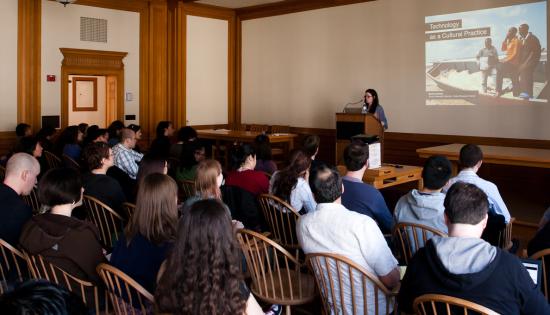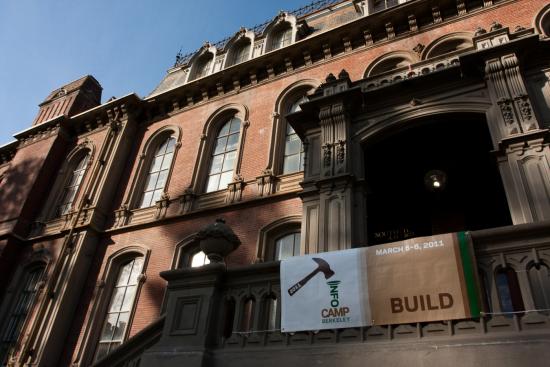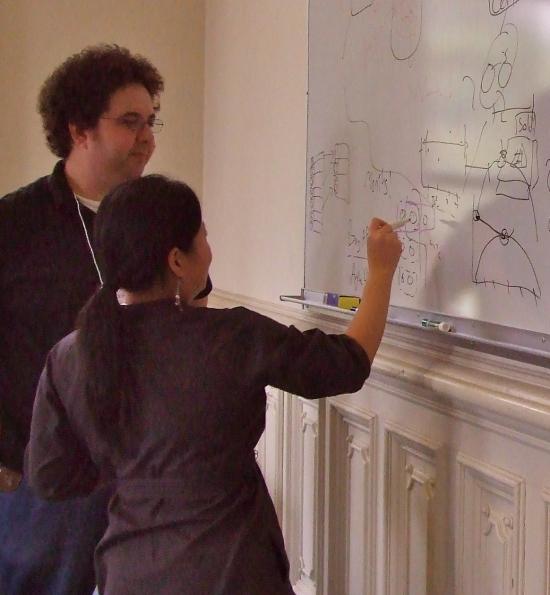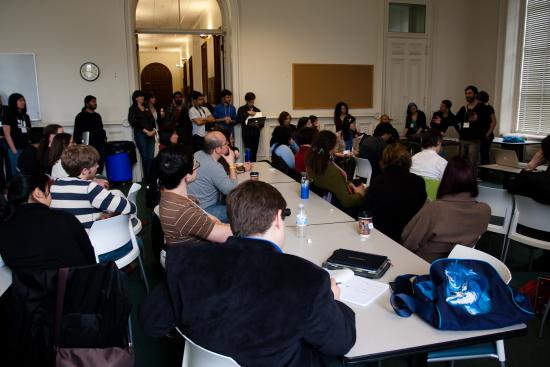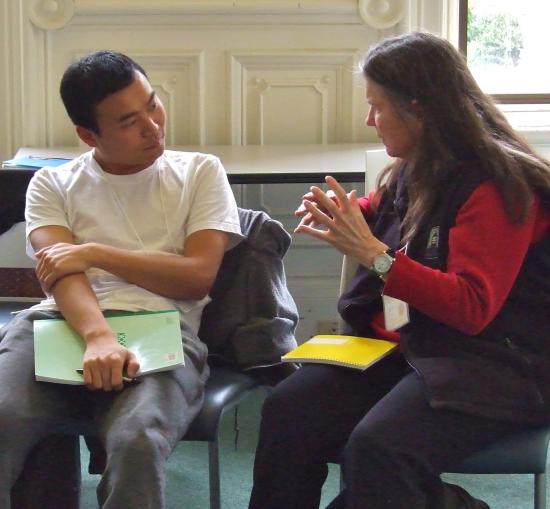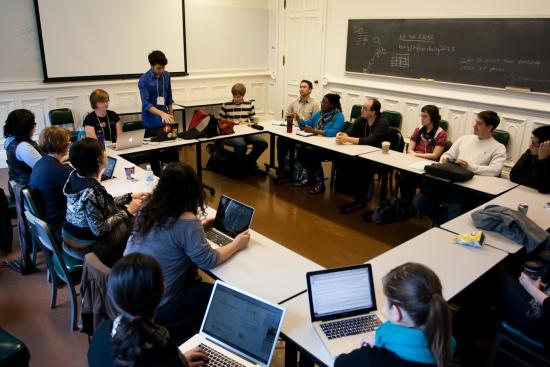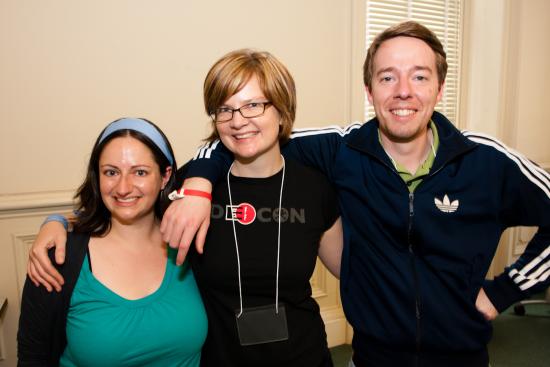Over 160 participants filled South Hall this past weekend for the School of Information’s second annual InfoCamp.
Billed as “an ‘unconference’ for the information community,” the event drew current students, alumni, local information professionals, librarians, faculty, computer scientists, and academics from other colleges and universities, including other schools of information and librarianship. The conference grew so much from last year that it overflowed into neighboring Wheeler Hall.
The ‘unconference’ format meant that other than the keynote addresses, none of the breakout sessions, speakers, or topics were set before the conference began. Instead, the participants arrived with their own ideas, and participants planned, hosted, and presented their own sessions.
“We see this as a bridge-building exercise,” explained student Heather Ford, part of the conference planning team. “The diverse range of people produced some really interesting conversation.”
The result was a wide range of discussions, panels, and presentations, led by a wide range of participants. Session topics included:
- Ideas for Integrating UX into your Organization
- Mobile Native Apps vs. Mobile Web Apps
- Becoming a UX Practitioner
- Location-based Social Networks
- Designing First Time User Experience for Gestural Interfaces
- The Dark Art of Crowdsourcing
- Information-Seeking Strategies of Youth
- User Trends of iPhone vs. iPad
- Design for Privacy
- ...and dozens of others.
The conference included a track focused on security, identity, and privacy, another track on Information & Communication Technology and Development, and a wide range of sessions on user experience design and evaluation. In addition, one group of participants conducted a “hackathon” on the second day, building projects like an app for PGP-encoded Facebook messaging.
In addition to the particpant-led sessions, two keynote speakers inspired the conference participants. Rachel Hinman shared her experience as a researcher, designer, and mobile user experience thought leader. Rachel is a senior research scientist at the Nokia Research Center in Palo Alto, California, where she focuses on the research and design of emergent and experimental mobile interfaces and mobile experiences for emerging markets.
Keynote speaker Donald Brinkman explored cutting-edge information visualization tools to examine history at a broad scale and to present media-rich interactive narratives. Brinkman manages external programs in digital humanities, digital heritage, and games for learning at Microsoft Research, and previously served as a technical program manager for the Microsoft education group.
The BerkeleyInfoCamp was entirely student-led; second-year MIMS students Kimra McPherson, Heather Ford, and Thomas Schluchter led a team of students to plan, organize, and market the event.
Student Julián Limón Núñez, who was attending his first InfoCamp, embraced the ‘unconference’ format. “Everyone gets to talk about what they're passionate about,” he explained. “The spirit of InfoCamp was really great,” observed Ford. “It isn't about hierarchies or power: it's about people having a good time and sharing what they know.”
Student Chloe Reynolds summed up the mood of the participants; “InfoCamp was awesome,” she said. “Everyone should come next year.”










